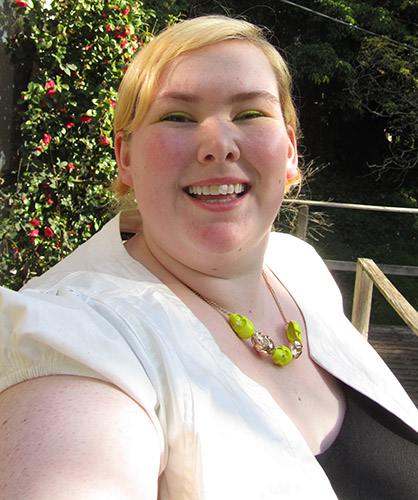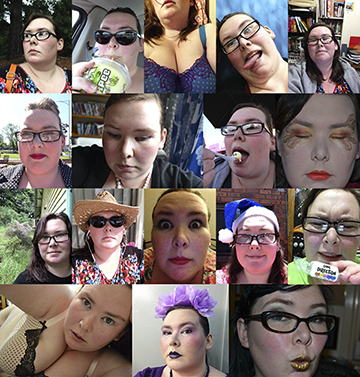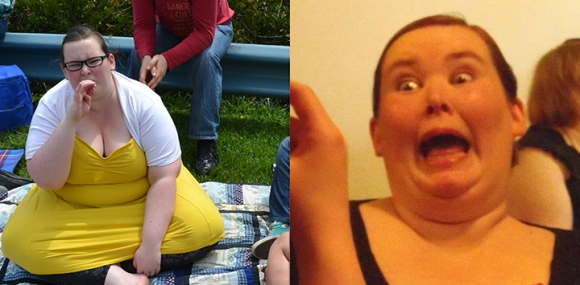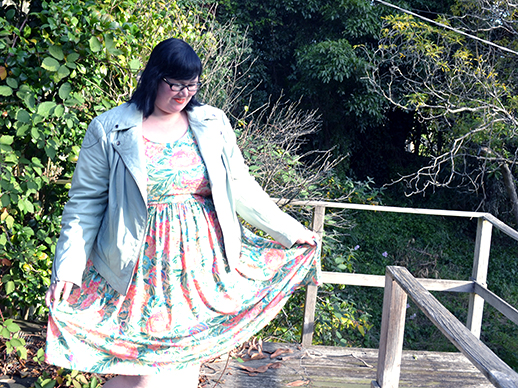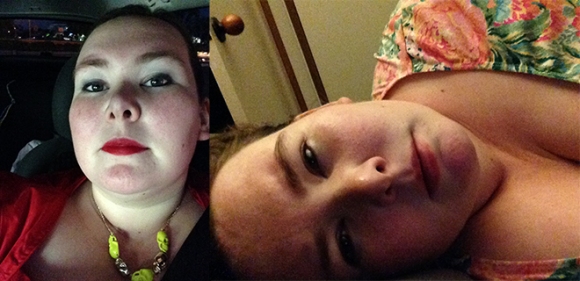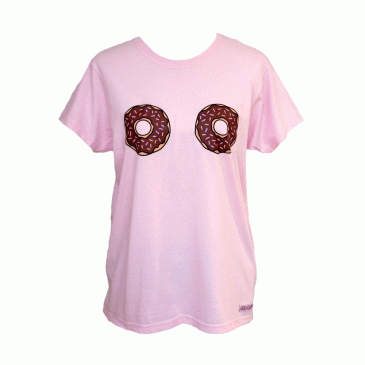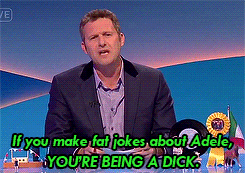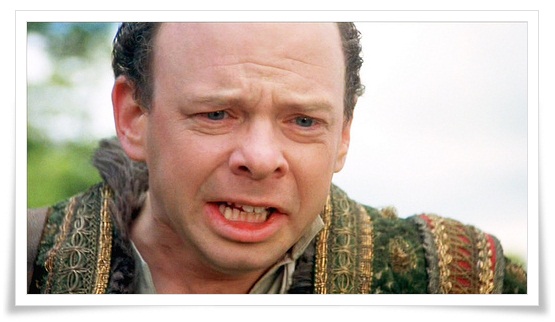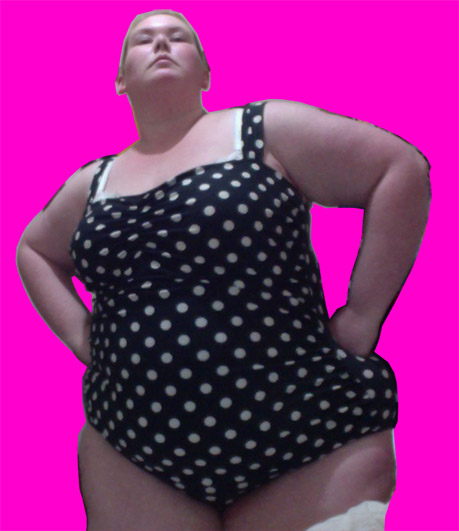Last week, Bustle published an article by Marie Southard Ospina titled “The Small Fat Complex in Body Positivity and Why it’s Not Entirely Justified.” And the content of that article was enough to inspire me to write something for this blog for the first time in over a year.
My initial feelings when I read Southard Ospina’s opinion piece were hurt and angry, but I decided to put off writing my response until I could approach it more calmly. To tell you the truth, I still feel hurt, but I think it’s important to highlight that articles like this contribute to the marginalisation of very fat people within body positive circles and beyond. Articles like this characterise us as mean, bitter, hateful and exclusionary, and attempt to position small fats as hard done by on all sides, victims not only of mainstream body shaming but of forcible eviction from the exclusive fat acceptance club as well.
The thing is, there isn’t an exclusive fat acceptance club, nobody has the power to evict anyone else from the fat positive movement, and the only “small fat complex” I can see is the need some smaller fats have to be the centre of everything.
That sounds harsh, and I know I run the risk of turning plenty of smaller fats against my argument by putting it in these terms, but I honestly don’t know how else to put it. Smaller fats already enjoy more public visibility, more mainstream acceptance (even if that acceptance is not complete), more access to things like fashionable clothing and medical equipment that is sized for them to use. Smaller fats are already the face of the body positivity movement in most places. But somehow not being welcomed and embraced by very fat people, who maybe want to surround themselves with people who look more like they do and share more of the experiences of fat hatred that are unique to very fat people, is enough to utterly ruin their self-esteem. For people who claim we are “a movement that’s at its strongest when banded together”, it seems awfully convenient to me that the main threat to a smaller fat person’s self esteem is people who are fatter than they are. If you are able to embrace your fat identity in the face of the entire fat-hating world telling you fat is bad, why would a relatively small number of people saying “you’re not fat” – for reasons that you claim to understand and be sympathetic to – undo that?
Southard Ospina says that “within fat acceptance bubbles on the Internet, there’s one body type that often receives a bit of flak”, meaning the small fat body. That is to say, those who are fat but who wear smaller plus sizes, or may even be able to squeeze into the high end of straight sizes. But it’s not actually the small fat body type that receives flak.. Criticism relating to small fats is actually about two things:
- The mainstreaming of fat positive ideas into “body positivity” for all (not just small fats, but thin women as well) has tended to focus on more socially acceptable deviations from the normative ideal body type – smaller fats, conventionally attractive fats, hourglass-shaped fat women, and white fat people in general. This allows people in these categories to enjoy more thin privilege than they previously did, which feels good for them, but does nothing to demolish thin privilege altogether and leaves larger or less “acceptably” fat people in the cold;
- The attitude some smaller fats have in responding to critiques and complaints about point 1 from larger fatties is defensive and hostile, and tends to lead to these critiques (which are legitimate and important!) being dismissed as mean, hurtful and exclusionary instead of considered on their own merits.
It is not “invalidating” to point out that a smaller person’s experience of sizeism is fundamentally different from the experience of a much fatter person. The author even goes into quite a lot of detail demonstrating that she knows and understands that experiences of fat stigma vary depending on size! But this seems to be just a rhetorical device to make her argument seem more reasonable, because her conclusion that critiques of the prominence of small fat images and voices in the body positive movement “only create divide” and undermine the strength of the movement seems to contradict her claim that she thinks fat shaming can be worse for very fat people.
In fact, it’s very telling that so much of this article is talking about shame and body image. Good body image is important, and hating your body because the world tells you that your size is bad really sucks. It’s draining, it’s hurtful, and it can escalate into all kinds of awful mental health problems and self harm. I’ve had an eating disorder that started from a “normal” weight loss diet, I get that wounds to one’s body image are not nothing. I’m sad for anyone who feels ashamed of their body, and happy for anyone who doesn’t fit the extremely narrow mould of conventional beauty who has managed to transcend mainstream messages about what is beautiful and feel beautiful as they are.
But feeling beautiful isn’t the main or most important goal of fat liberation for me and other fatties who are size 26 and over. Feeling ugly isn’t the worst thing I face as a very fat woman. Compared with being less likely to be hired for a job than a thinner person, being routinely denied proper medical care and being either excluded or made seriously physically unsafe by furniture and equipment that isn’t designed to accommodate me, some dickhead telling me fat girls are unfuckable is kind of small change. Yeah, it can hurt immensely, and the world would be a better place if it didn’t happen. But if the only thing “body acceptance” achieves is allowing me to feel pretty despite being systemically victimised for my body size, I’m still pretty much fucked.
In addition to this, when you are very fat, even body positive circles tend to be full of rhetoric that either excludes or actually vilifies you. Being a bit fat is fine, as long as you’re not too fat. Being fat is fine as long as you’re “fit” and “healthy”. Look at all these gorgeous size 18 models! I’m all for body positivity, but isn’t that just unhealthy? Isn’t it great that this department store is now catering to ALL BODIES with their range that goes from size 0 to size 22? Here’s a discussion about whether or not very fat people’s critiques of small fat prominence in body positive circles are “entirely justified” in which I interview ONLY SMALL FATS.
Southard Ospina argues that “to tell someone whose body — even if that body is a smaller type of fat body — that their experiences with eating disorders, excessive exercise, fat shaming, body shaming, or body image issues in general are invalid simply because they aren’t “that fat” is unfair to that person.”
And she’s right, it would be unfair if someone said that. But that actually isn’t what most people in this ongoing conversation are saying (maybe some people are, there are dickheads everywhere, but it is not the prominent or prevailing sentiment). Saying “you’re not fat” or wishing out loud to see more larger bodies represented in body positive circles (even in a rude and dismissive way!) isn’t actually the same thing as saying “your experiences with eating disorders are invalid.” After all, “she’s not even that fat!” is a common cry made in support of thinner women who experience body shaming, as if it is this alone that makes the shaming reprehensible. And of course actually unequivocally thin women experience body shame and eating disorders as well, not just fat women. That doesn’t mean thin women should be the only bodies represented in body positive circles, or that it is cruel and invalidating to point out that they have thin privilege.
Southard Ospina concludes her article with a touchy-feely appeal to fat people of all sizes to come together as one, saying “although we should always be self-aware enough to acknowledge our privileges in this world (and self-aware enough not to identify as fat when we are very clearly thin), I believe we should also be self-aware enough to acknowledge where society and culture are doing us wrong. All of us.”
What this seems to be saying to me is that it is just as important for very fat people to talk about the struggles of small fats as it is for small fats to acknowledge their own privilege. And that is a contention with which I fundamentally disagree. It is always incumbent upon all of us who have privilege to use our privilege to support the struggles of those less privileged than ourselves, even in contexts where we also experience some marginalisation. We get to talk about our own problems too, but we are not entitled to have our lesser struggles prioritised by those with less privilege, who have their own damn work to do, and we should take notice when talk about our problems is eclipsing the public discussion of more severe oppression. This is why white feminists must promote and fight for women of colour, why currently able bodied people must promote and fight for people with disabilities and why small fats must promote and fight for super fats. Because a body positive culture that frees super fat people from fat hatred will free small fats as well, but a body positive culture that works as far as freeing small fats from fat hatred and then rests on its laurels leaves a lot of us still marginalised and still suffering.
And if you feel like having your fat identity actively validated by everyone you encounter is just as important as someone else’s struggle for access to adequate medical care, and deserves just as much prominence and discussion time, I am not sure if you really do understand how much worse fat hatred is for very fat people.
